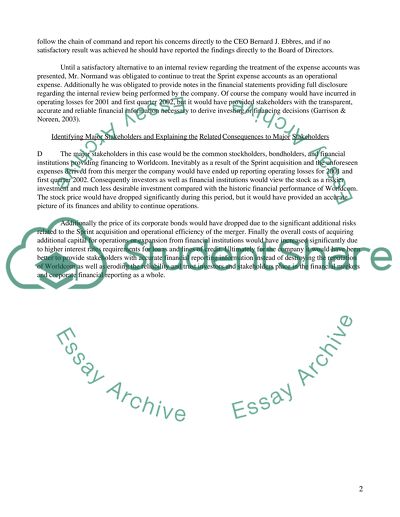Cite this document
(“Identifying and Describing the Ethical Issue. Worldcom Essay”, n.d.)
Identifying and Describing the Ethical Issue. Worldcom Essay. Retrieved from https://studentshare.org/finance-accounting/1489940-identifying-and-describing-the-ethical-issue-worldcom
Identifying and Describing the Ethical Issue. Worldcom Essay. Retrieved from https://studentshare.org/finance-accounting/1489940-identifying-and-describing-the-ethical-issue-worldcom
(Identifying and Describing the Ethical Issue. Worldcom Essay)
Identifying and Describing the Ethical Issue. Worldcom Essay. https://studentshare.org/finance-accounting/1489940-identifying-and-describing-the-ethical-issue-worldcom.
Identifying and Describing the Ethical Issue. Worldcom Essay. https://studentshare.org/finance-accounting/1489940-identifying-and-describing-the-ethical-issue-worldcom.
“Identifying and Describing the Ethical Issue. Worldcom Essay”, n.d. https://studentshare.org/finance-accounting/1489940-identifying-and-describing-the-ethical-issue-worldcom.


